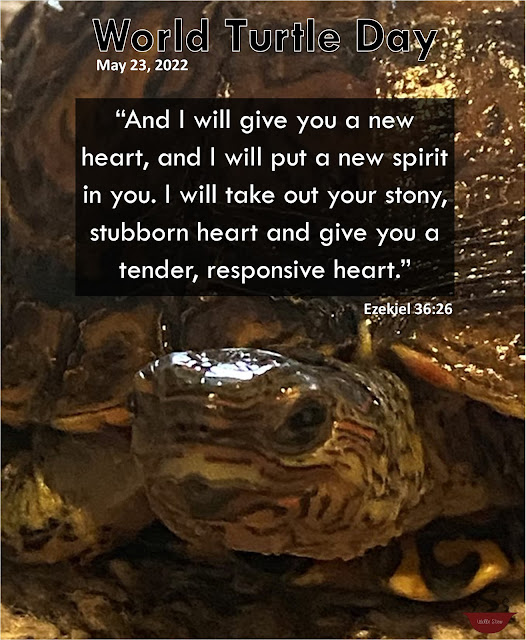Isaiah: Chapters 15 & 16 | The Wolfe Notes
Welcome, Family! We're spending 2024 with the prophet Isaiah. While we claim no expertise, we're excited to sit with you as we both learn at the feet of Jesus. Each month, we offer a calendar that outlines daily exercises (adapted from Jenn Wilkin's Women of the Word Bible study process) to progress through Isaiah. Download March's calendar to begin with us and witness what we uncovered in our weekly "Wolfe Note" postings.
Contents:
- Different Versions Noting and clarifying differences between TLB & GNT.
- Annotation My thoughts, connections, clarifications, and questions.
- Research on God's despair.
- Summary An approximately twenty word overview of the chapter.
- Memorize Why I chose to memorize Isaiah 16:4.
- Cross References Of Isaiah 16:4.
- Respond Based on reflections on God's character and my own.
Different Versions
- "God will reward you for your kindness to us." TLB v. (Oppression and destruction will end....he will see that justice is done.) GNT. Isaiah 16:4-5. *The speaker and subject here are confusing. Both the TLB and GNT make it sound like it's the Moabites asking Judah for refuge, while others, like the NIV, ESV & KJV, interpret God speaking to the Moabites. Most versions favor God as the speaker. Barnes suggests God is talking about the Israelite refugees returning to Judah. Ellicott and Cambridge suggest Moab is seeking asylum *which makes sense in context. The Hebrew might read: *Let those who were thrust out fall safely (into/from) Moab as a hiding place to escape from ruin.
- *Conclusions: While few notable differences emerged between TLB and GNT, reading it in the KJV was quite different. The KJV rendering was more poetic, detailed, and emotional.
Annotation
- Message to Moab (Chapter 15)
- Moab: unimaginable terror is coming. (v1-4)
- ? Where are these places: Ar, Kir, Dibon, Nebo, Medeba, Heshbon, Elealeh.
- ! Shaved heads like the prophecy of making Zion bald (Isaiah 3:17) or when God uses the Assyrians as a "razor" to shave off land, crops, people (literally head hair, beard, and body hair) in Isaiah 7:20. Remember, that hair represents glory and our intimate relationship with God.
- Even the land and waters will be affected. (v5-9)
- ? Where are these places: Zoar, Eglath, Luhith, Horonaim, Nimrim River, and the Brook of Willows?
- ! "...but I am not through with Dibon yet!" (v9) reminds me of the repeated idea in Isaiah 9:12, 17, 21 - "Yet even so the Lord's anger is not ended; his hand is still stretched out to punish."
- No one will escape (v9)
- ? What is God's purpose in warning them? Is it the same as in Chapter 6? Hoping they will yet turn to Him though their minds are dull?
- Moab-Israel Alliance (Isaiah 16:1-5)
- Moab pleads with Israel for refuge. (v1-4)
- ! Naomi was an Israelite who sought refuge among the Moabites. Ruth 1:1-2
- ? When was the story of Ruth in relation to this prophecy?
- ? Where is: Sela and the Arnon River?
- ? Why do the Moabites offer sheep to Jerusalem? Do sheep symbolize peace or that they are used as sacrifice? Is there a connection to the Lamb of God here?
- Moab promises that God will reward Israel if they provide refuge. (v5)
- ? Who are the Moabites' enemies?
- ? How would the Moabites know God would reward Judah for their kindness? And in what way they would be rewarded? Are they speaking with God;s authority or hoping?
- God's Judgment (Isaiah 16:6-14)
- God cries with Moab over what happens. (v6-11)
- ? Where are Sibmah and Kir-hareseth?
- ! Contrast Solomon's vineyard, God's vineyard, and the vineyards here described. *What God intends for good, the desires of men's heart have here destroyed.
- ! God weeps (even for Gentiles). Jesus weeps (John 11:35). We weep.
- ? Why is God so distressed over the Moabites? *R
- Yet they still pray to other gods. (v12)
- ! The "tops of the hills" reminds me of the Samaritan woman (John 4:19-24). Is there a connection here?
- ! Only Jesus saves. (John 4:22 & John 14:6)
- A timeline of three years is given, after which few Moabites will remain (v13-14)
Research
Why is God so sad about the judgment of the Moabites?
History of the Moabites (from Theology of Work's post "What Can We Learn from the Judgment of Moab" and The Long Haul with Isaiah's post "Isaiah's Deep Empathy for Moab's Demise")
- Moab was Lot's son. (Gen 19:36-37)
- Moab is like a cousin to Israel.
- But, they disagree on religion: The Moabites were pagan.
- Moab caused Israel great trouble during their initial years in Canaan and oppressed them for 18 years after Joshua died (Judges 3:14-21)
- Israelites, including Naomi, found refuge in Moab during famine. This kindness was not forgotten by God (Ruth 1:1-2)
- Moab drew close to the Assyrians in the 8th century BC which incited God's wrath.
- God cares about the sin of all people; even the people who are not part of His chosen nation.
- The Moabites express an implicit faith in God, even though they practice a different religion.
- God's desire is for no one to experience His judgement. (Radical podcast: "Mercy in the Midst of Judgment", I Timothy 2:4 & 2 Peter 3:9)
- *Translations and commentaries vary between "I" being God or Isaiah.
- The Long Haul with Isaiah's thoughts agree with mine: "The prophet does not only speak for God but he feels and emotionally responds as would Yahweh."
- *So, whether "I" is God or Isaiah, ultimately, it is God's emotion directly or God's emotion coming through in Isaiah's expression.
*Conclusions: Moab is a close relative of Israel with a lot of history. God feels deep compassion for Moab and expresses a sense of regret for the punishment that is coming. Jesus weeps (John 11:35). God weeps. Our God cares, deeply.
Summary
Memorize
Let mine outcasts dwell with thee, Moab; be thou a covert to them from the face of the spoiler: for the extortioner is at an end, the spoiler ceaseth, the oppressors are consumed out of land.
Because it demonstrates God's care for His people and how He wants us to care for them too.
Cross References
Of Isaiah 16:4:
- Isaiah 15:6 GNT: The Nimrim Brook is dry, the grass beside it has withered, and nothing green is left.
- Isaiah 25:10 GNT: The Lord will protect Mount Zion, but the people of Moab will be trampled down the way straw is trampled in manure.
- Zechariah 10:5 GNT: The people of Judah will be victorious like soldiers who trample their enemies in the mud of the streets. They will fight because the Lord is with them, and they will defeat even the enemy cavalry.
- Isaiah 14:4 GNT: When he does this, they are to mock the king of Babylon and say: "The cruel king has fallen! He will never oppress anyone again!
- Isaiah 33:1 TLB: Woe to you, Assyrians, who have destroyed everything around you but have never felt destruction for yourselves. You expect others to respect their promises to you, while you betray them! Now you, too, will be betrayed and destroyed.
- Isaiah 51:13 KJV: For the Lord shall comfort Zion: he will comfort all her waste places; and he will make her wilderness like Eden, and her desert like the garden of the Lord; joy and gladness shall be found therein, thanksgiving, and the voice of singing.
- Deuteronomy 23:15-16 TLB: "If a slave escapes from his master, you must not force him to return; let him live among you in whatever town he shall choose, and do not oppress him."
- Jeremiah 21:12 KJV: O house of David, thus saith the Lord; Execute judgment in the morning, and deliver him that is spoiled out of the hand of the oppressor lest my fury go out like fire, and burn that none can quench it, because of the evil of your doings.
- Isaiah 58:7 GNT: Share your food with the hungry and open your homes to the homeless poor. Give clothes to those who have nothing to wear, and do not refuse to help your own relatives.
Respond
- God feels our sorrow. I am not alone in my sadness. When I am sad, I can turn to God knowing He understands. When others are sad I can learn to weep when they weep (Romans 12:15). For "Singing cheerful songs to a person with a heavy heart is like taking someone's coat in cold weather or pouring vinegar in a wound." Proverbs 25:20 NLT
- God wants us to care for His people. I am one of His people and I have a purpose in this calling. Just as I will need to be cared for at times, I will need to care for others at times. Even when the others God brings to my doorstep disagree with my viewpoints, values, and virtues, I must protect and lead them to Jesus because God entrusts them to me.
- God saves. I do not, nor does anyone or anything else save. I am asked to seek Him, to cry out in my time of distress (Psalm 120:1), to shower Him with praises for the good He has done (Isaiah 12:5), to trust and wait for Him when I've lost all hope (Psalm 43:5) - for turning to anything else will do no good Isaiah 16:2.




Comments
Post a Comment
Thank you for adding your flavor to the stew.